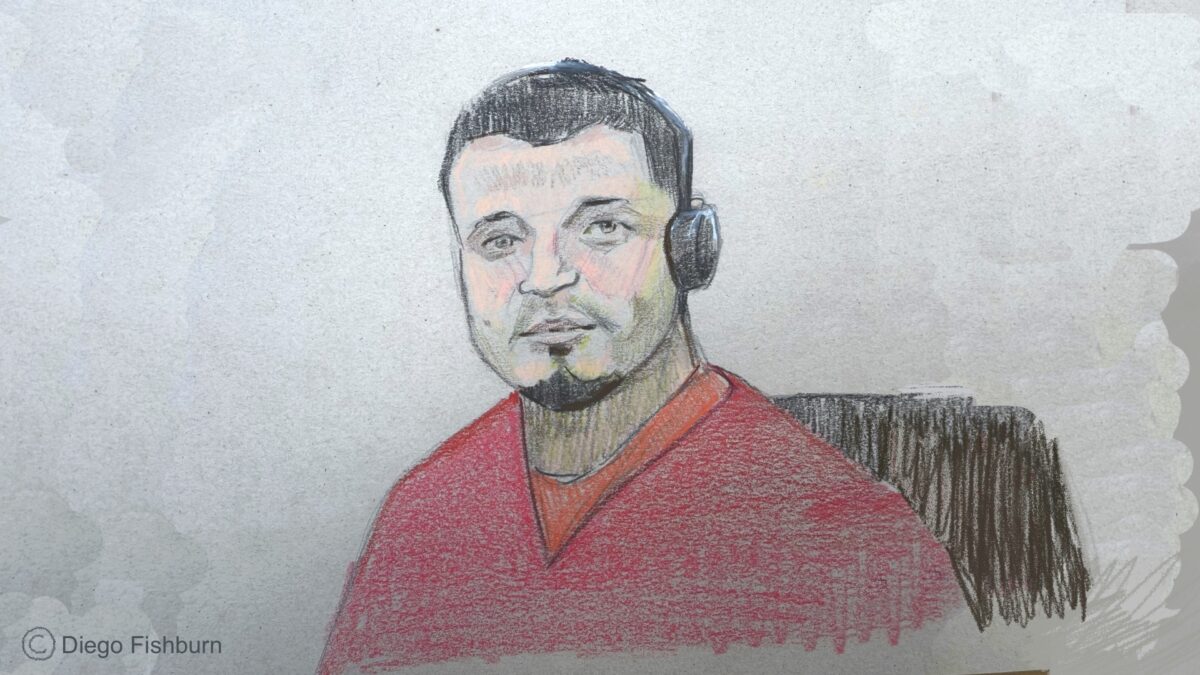Kilmar Abrego Garcia Files Motion to Dismiss His Criminal Case, Arguing 3-Year Delay Was ‘Vindictive,’ ‘Suspicious Timing’

Diego Fishburn via AP
Kilmar Abrego Garcia filed a motion to dismiss the criminal case filed against him arguing that it constituted selective and vindictive prosecution, specifically arguing that the three-year gap between his traffic stop and the charges being filed against him was “suspicious timing” and evidence of the government’s retaliatory intent.
Abrego Garcia, a citizen of El Salvador living illegally in Maryland with his wife and children, was deported in March and sent to the Centro de Confinamiento del Terrorismo, abbreviated CECOT, a notorious maximum security prison in El Salvador that is well-documented to be a cesspool of human rights abuses. Abrego Garcia has alleged he endured “severe beatings” and “psychological torture” while imprisoned there.
The case has captured national attention amid President Donald Trump’s crackdown on illegal immigration, getting all the way to the Supreme Court and igniting debates about constitutional rights and due process. In multiple court filings, at least three separate Trump administration officials conceded that Abrego Garcia had been mistakenly deported because of an “administrative error.”
In June, Abrego Garcia was transported back to the U.S. with a two-count criminal indictment waiting for him when he arrived.
The specific incident that gave rise to the indictment was a November 2022 traffic stop. According to prosecutors, Abrego Garcia was pulled over by the Tennessee Highway Patrol while he was driving a Chevrolet Suburban with nine Hispanic male passengers who did not have identification or luggage.
The indictment, originally filed under seal in Nashville, Tennessee on May 21, includes two charges against Abrego Garcia (8 U.S.C. § 1324 (a)(1)(A)(v)(I), conspiracy to transport aliens, and 8 U.S.C. §1324 (a)(1)(A)(ii), unlawful transportation of undocumented aliens) and accuses him of being “a member and associate of the transnational criminal organization” known as MS-13, and that he and the other co-conspirators “knowingly and unlawfully transported thousands of undocumented aliens who had no authorization to be present in the United States, and many of whom were MS-13 members and associates,” and also “occasionally and simultaneously transported firearms illegally purchased in Texas for distribution and resale in Maryland.”
Ben Schrader, who was the chief of the criminal division for the U.S. Attorney’s Office for the Middle District of Tennessee, resigned because of the decision to pursue this indictment against Abrego, according to a report by ABC News.
The Motion to Dismiss for Vindictive and Selective Prosecution filed by Abrego Garcia’s attorney Sean Hecker argued that “prosecutorial power, though vast, is not unlimited,” and “cannot be used to punish someone for exercising his constitutional rights.”
“Yet that is exactly what has happened here,” Hecker wrote, arguing that his client “has been singled out by the United States government” and the reason why was “obvious”:
And it is not because of the seriousness of his alleged conduct. Nor is it because he poses some unique threat to this country. Instead, Mr. Abrego was charged because he refused to acquiesce in the government’s violation of his due process rights. The government unlawfully removed him to El Salvador, an action it subsequently admitted was a mistake. Predictably, once in El Salvador, Mr. Abrego was incarcerated at the notorious Terrorism Confinement Center (“CECOT”), where he was beaten and otherwise subjected to inhumane conditions. Mr. Abrego responded to the government’s shocking, illegal conduct by filing a lawsuit. Rather than fix its mistake and return Mr. Abrego to the United States, the government fought back at every level of the federal court system. And at every level, Mr. Abrego won. This case results from the government’s concerted effort to punish him for having the audacity to fight back, rather than accept a brutal injustice.
As Adam Klasfeld noted in his report at All Rise News, it has been “confirmed” during two of Abrego Garcia’s prior bail hearings that the federal government’s criminal investigation was begun “weeks after the Supreme Court ordered the government to facilitate his return to the United States — and some three years after the traffic stop at the heart of Abrego’s case.”
During that initial 2022 traffic stop, Abrego Garcia was allowed to leave without even a speeding ticket.
Hecker’s motion highlights public comments by Trump, Homeland Security Secretary Kristi Noem, Attorney General Pam Bondi, Deputy Attorney General Todd Blanche, and other Trump administration officials targeting Abrego Garcia as proof of the intentional “retribution” and “unreasonableness” of the government’s actions.
The motion described how Abrego Garcia’s defense team had “attempted to catalogue” every similar charge in that jurisdiction “within the last 15 years that counsel could find to see if any other defendant had ever faced a similarly long delay between the traffic stop that supported the charge and the charge itself.”
“We found none,” wrote Hecker. “We suspect it is because there are none.”
An exhibit attached to the motion listed all the cases the defense found.
“Although in a few outlier cases, the charge might have taken a few months to come, the average time between stop and charge was well under a month,” wrote Hecker. There were no cases at all where a defendant accused of being the driver in an alien smuggling conspiracy “has ever had to wait two and a half years to be charged with a crime where the facts had not changed since the stop itself.”
“Courts have found such suspicious timing to be evidence of apparent vindictiveness,” the motion argued.
New: The Mediaite One-Sheet "Newsletter of Newsletters"
Your daily summary and analysis of what the many, many media newsletters are saying and reporting. Subscribe now!






Comments
↓ Scroll down for comments ↓